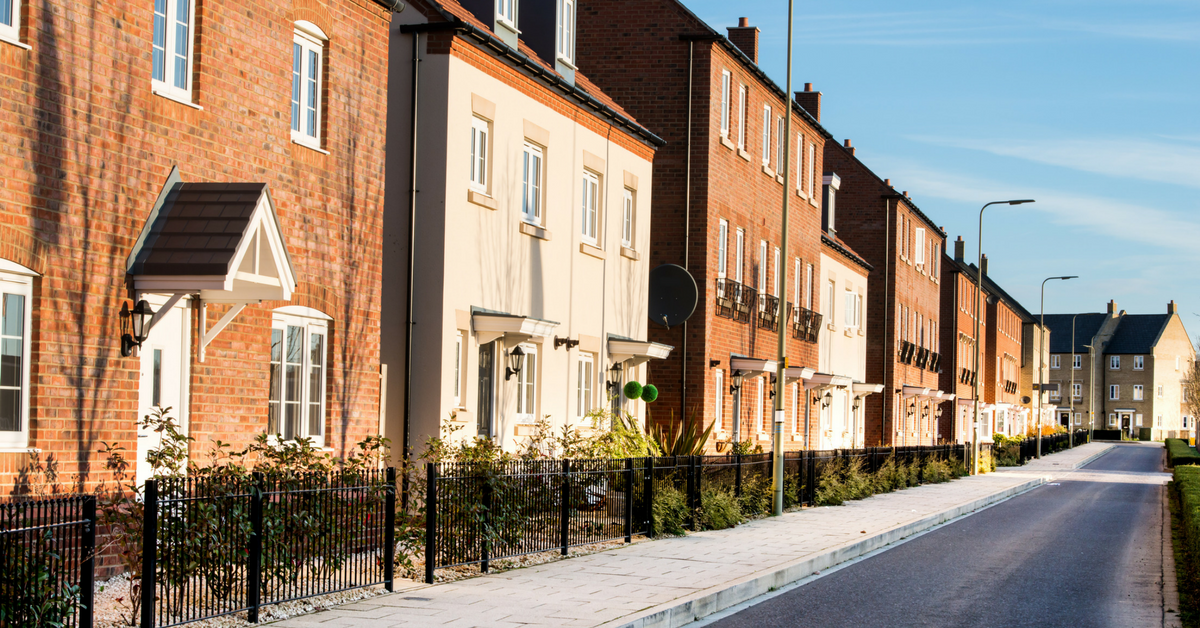How to get started in property investing
In an ever changing financial world, increased accessibility to asset classes such as residential property investments, and innovative ways of investing into them, can help to diversify and boost any investor's portfolio.
Investing into bricks and mortar has long been a popular choice for a diverse range of investors, from everyday investors right through to the institutional level. One of the main reasons for this is the versatility property investing allows - many will invest in both residential and commercial property developments, and in everything from those properties they can refurbish and sell almost immediately for a profit through to those on a 'buy-to-let' model, whereby they can let it to tenants and see a recurring income.
Properties are tangible assets - you can see what the money invested looks like, and how it can actually be used and transformed.
In the UK, property is an investable asset class, backed by strong and growing demand. In very simple terms, the UK has not been building enough houses. This is a longstanding issue that has compounded with each passing year. As we talked about recently, too few houses built in 1977 has an impact in 1978 and, when no corrective action is taken, this is carried forward into 1979 and beyond.
With this understood, it's no surprise that it seems more people than ever want to get involved in property investing. The opportunities are vast, varied and most importantly, accessible. Arguably more so than they ever have been.
So how can you get started in property investing?
For any type of investment - not just property - taking professional advice is always recommended. A professional advisor will talk you through everything from the risks associated with a specific investment opportunity right through to the return potential and how they both can affect your financial position.
As part of the discussion, you'll no doubt be asked one question first though, and it's one every investor needs to have a clear understanding of and answer to - do you want to invest to see an income delivered on a regular basis, or for a single sum delivered after a certain growth period?
Whilst it is important to have an answer to this as a property investor, what's particularly interesting is that with property, income and growth are not mutually exclusive. You can very realistically invest in opportunities that provide both to some extent.
With that said, to get started with property investing, it's best to understand the difference.
Investing into property for an income return
For income-based returns, you want the opportunities that produce a yield; the return that you would expect to receive on a regular basis after you've invested your initial money.
The possibilities with income-based investments are varied, and as such the terminology around what a 'yield' is can vary. Generally speaking, however, they're divided into two sections:
- Rental yield: these could be monthly rental payments received from investments in, for instance, residential buy-to-let properties. The payments are expressed as a proportion of your capital investment.
- Dividend yield: this is the term used for regular payments from investments made across a range of different asset classes. These aren't guaranteed and can fluctuate depending on the performance of the investment.
Although there's no definitive rule, those investing into property for a yield are generally looking to supplement an existing income, or - although bringing with it a certain level of risk as returns aren't necessarily guaranteed - potentially using such investments as their primary income.
Investing into property for growth returns
When investing with an aim for growth, this can be achieved through various opportunities, both with regards to investing in general and specifically for property investing.
While investing for growth has arguably more risk than investing for income (you could very easily need to wait several years to see a return on your capital investment), doing so with property in mind has seen many positives over the last decade or two - the value of UK property has increased since 2000, with residential property in the UK in particular having grown by an average of 6.6% per year.
With an understanding of which of the two returns are best suited to your needs and expectations, and a decision made on that which you wish to focus on primarily, you then have a number of options open to you surrounding which route you can take to actually make your property investments.
Property investment types and the role of technology
As all aspects of our personal lives increasingly move online, so too does our growing tendency to look for investment opportunities. We’re becoming less inclined to head to high street banks for ways to invest our money, instead looking to do it more often from the comfort of our desks and deck chairs.
Property investing has been fully embraced by innovative investment structures - think equity crowdfunding, peer-to-peer (P2P) lending and bonds - and like the income and growth scenarios above, all three are complementary but have clear differences.
Equity crowdfunding
Relying on growth in the value of an investment to provide a return, property investments made through equity crowdfunding platforms typically involve taking a share in a property development project that will deliver a return once the development is complete and the homes have been sold.
The capital remaining in the special purpose vehicle (SPV) will be distributed to investors proportionate to their shareholding.
Peer-to-peer (p2P) lending
Providing an income return through a structured repayment schedule, property investments made through P2P lending platforms involve loaning capital to borrowers who are seeking to finance a property deal.
The capital is repaid in addition to an agreed rate of interest, with this rate of interest determined by the credit worthiness (and implicit risk profile) of the borrower.
Property bonds
Investing into a property bond can enable investors to access property development and investment growth opportunities that have traditionally been the preserve of larger financial institutions.
Bonds typically offer short to medium-term, fixed-rate investments in UK property developments and the structure allows profits to be generated from large-scale projects in the UK housing market with high interest rate returns.
These investment structures can be combined with the more traditional approach to achieving complementary returns. Doing so can provide a modern, diversified portfolio of property investments - and together can directly address the housing crisis here in the UK.
Next steps to investing into property
I've only touched on the very start of a journey to property investing. The options and opportunities are so varied that there are quite literally dozens upon dozens of different routes that can be taken, each providing a unique route to investing into property.
What's most important to understand is that the opportunities are there, and the support, education and guidance is freely available.
For years, access to property finance investments was the reserve of banks, hedge funds and high net worth individuals. But new investment platforms make it possible for a broader pool of investors – individuals and companies alike – to gain access to and see more of the upside from residential property investment in all of its forms.
The action of making finance accessible to everyone is perhaps at risk of becoming an overused phrase, but technology platforms and innovation are at a meeting point to expand the range of investment opportunities available to all investor types.
From institutional investors through to high net worth individuals and across to everyday investors with smaller budgets, they can all invest alongside each other into property related asset classes - and importantly, benefit from them equally.
%20(3)%20(2).jpg)






